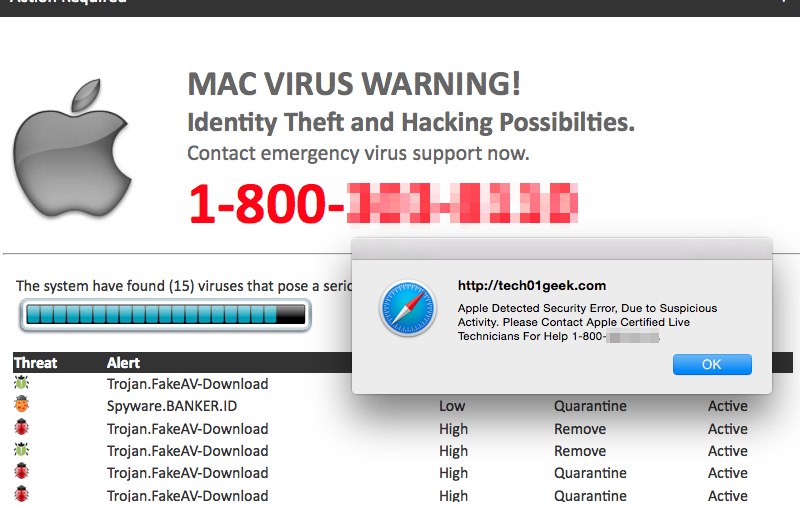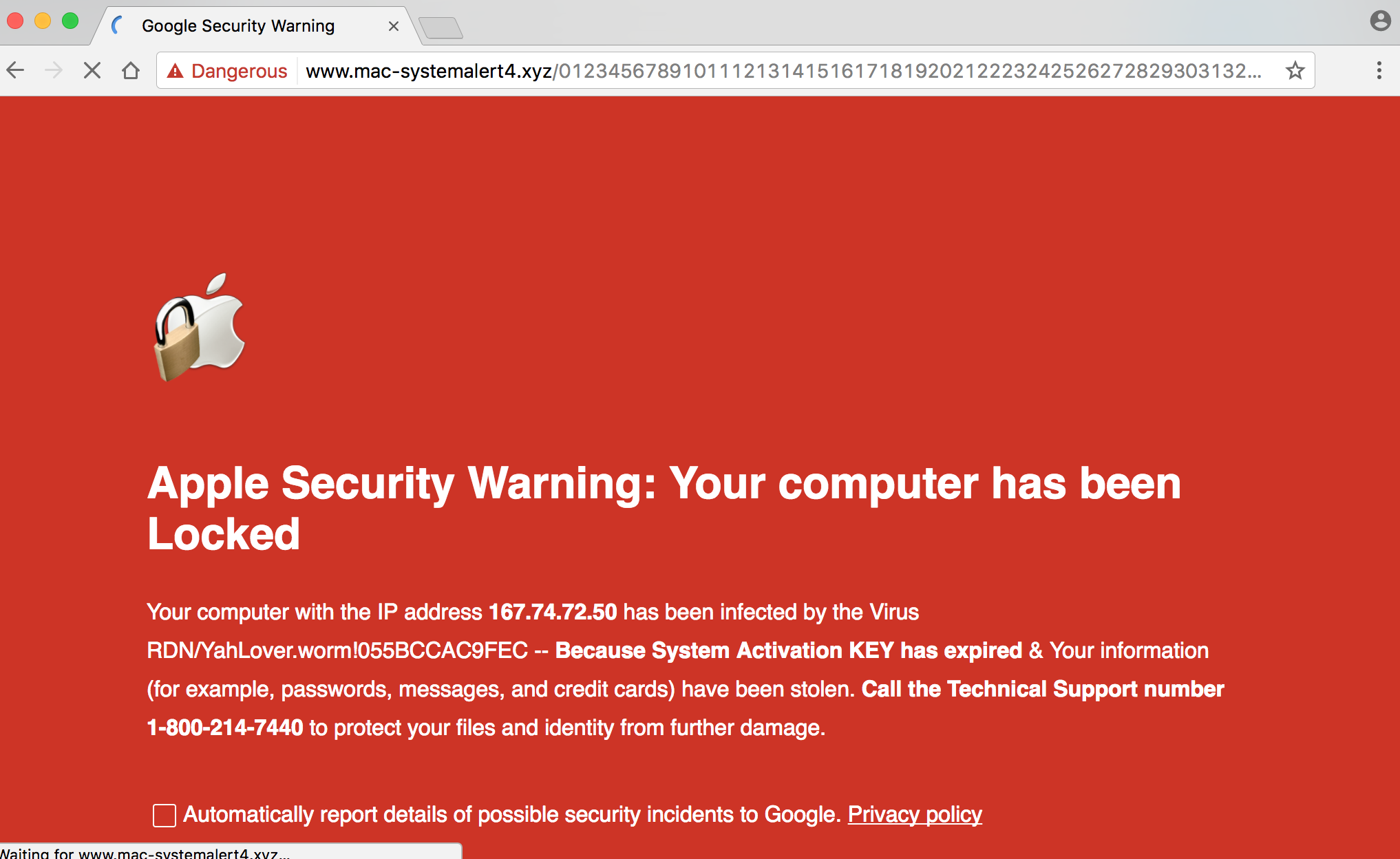The Real Threat to Your Privacy and Security
Posted by Aitan on 2018 Jan 29th
In the last few days I've been shocked by how many scams I've seen people fall prey to. Even when their haven't been compromised, people are terrified that they have been taken advantage of. Over the years, I have seen folks fleeced for anywhere between $300 to $3000. No one situation is alike, yet they all share one thing in common—one momentary lapse of reason brought on by fear.
If you listen to TechTalk on AM1070 with Alan Perry and I, you’ll know that we’re often talking about security updates, and new threats that they’re trying to fix. You’ll likely also know that I’m not a big fan of Antivirus software.
The reason is simple. In seven years, i’ve seen lots of adware and malware, but the only thing that’s really affected anyone are webpage hijacks: sudden inexplicable warnings that take over your computer.

How you come across them:
- You have some adware installed that can take over your search results and lead your web browsing astray
- You’re visiting websites that are:
- Poorly funded, outdated and ill-maintained
- Offer free content that would ordinarily be paid-for content
- Free TV, gambling, and/or pornography websites
- Free and/or unmoderated gaming websites
- You click on unsolicited emails that try to trick you into updating your passwords or login credentials
- You click on warning emails that look like they're from the CRA or your bank
- You click on unsolicited package tracking emails—be wary of generic emails from UPS, USPS and Canada Post
All in all definitely a case of "browser beware". If you’re the kind that only ever walks the straight and narrow, sticking to larger, commercial websites, you’re less likely to come across these threats, but not completely immune.
They come in different forms:
- The whole screen is taken over, no menubar, no dock
- Warning signs. Some even have audio alerts playing
- Oversized spinning beachballs
- Threat messages that suggest your computer is being hacked
- Offers to call a 1-800 number for support
- Can appear to be an Apple support company—sometimes even looking like Apple

If you ever come across something like this, don’t panic, and rest assured of the following:
Your computer is not hacked, you may have some adware at the worst, but no one is inside your computer
It’s actually quite easy to bypass these scams
It cannot cross-contaminate your iPad or iPhone
If you do actually call the company shown on the page, the person at the other end is not an Apple tech support provider, and definitely not trustworthy
If you do call them, they will talk you into giving them access to your computer
This is without a doubt the biggest threat that I have seen to date—at least on Macs, and in numerous cases the victims did actually have antivirus like ESET, Sophos or Norton Antivirus installed.
Next month we will provide a guide on how to force quit your browser in situations like this, but until then, if we can save one person from falling prey to these scams, it will be well worth it. Please, please, if you’re not inclined to forward our newsletter in its entirety, please share the link to this page with your Apple friends, and tell them to never call the number on the screen.
Always remember: no person or website can ever truthfully tell you that you are under threat and being actively hacked.
